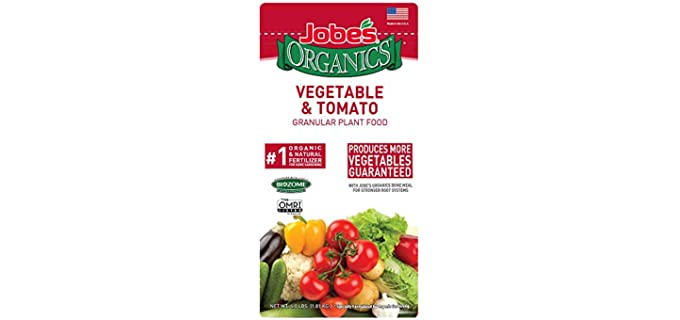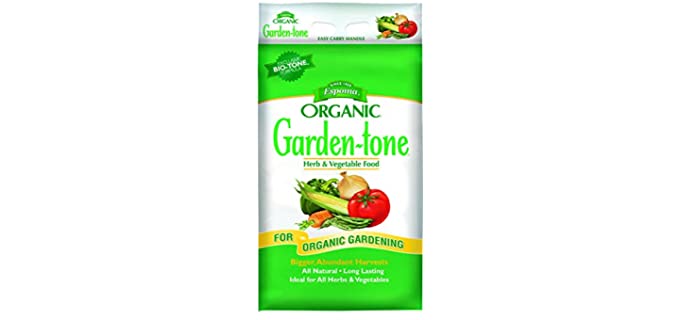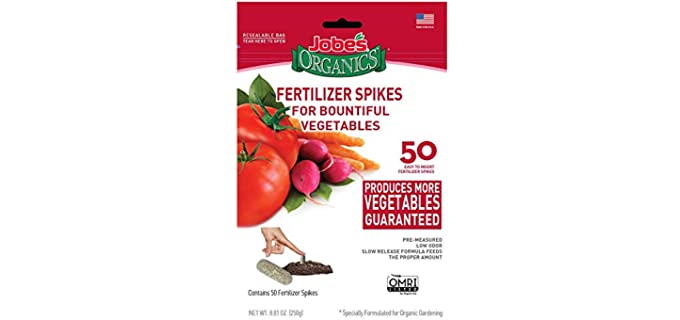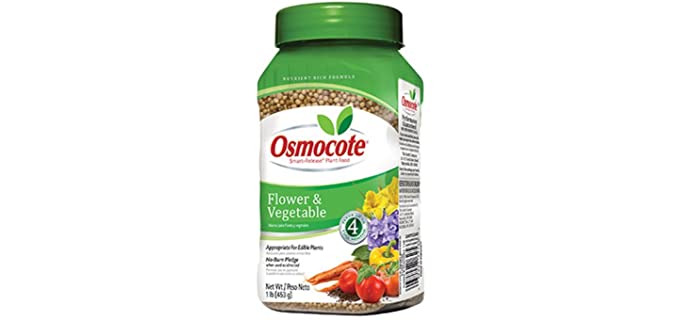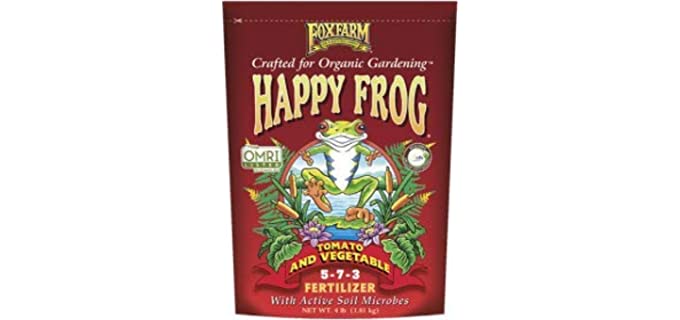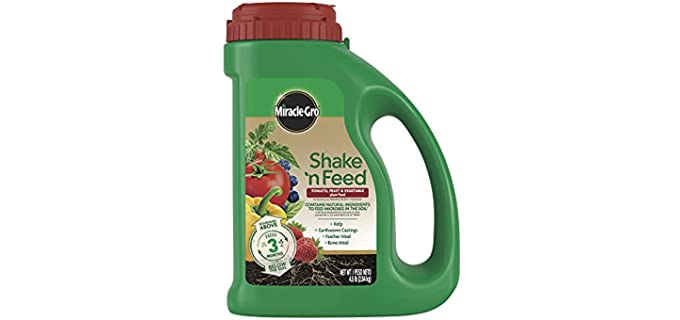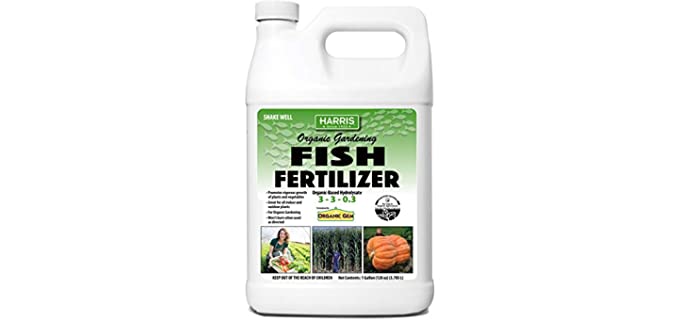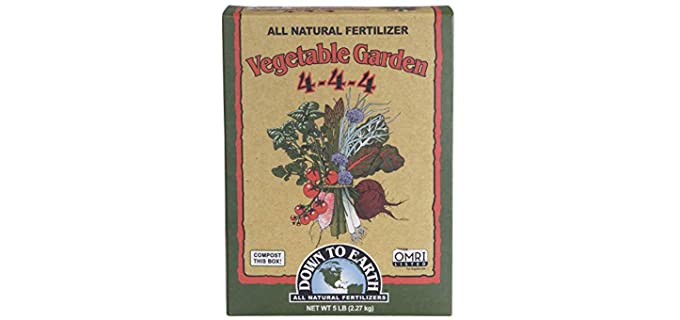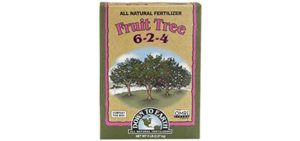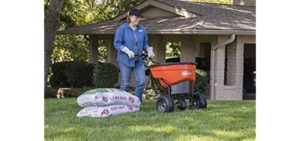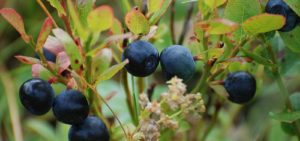Growing an abundant supply of healthy and fresh vegetables can be a rewarding experience. To achieve this, it’s crucial to understand and use the right fertilizers. By doing so, you can empower yourself with the knowledge to nurture your plants and ensure a bountiful harvest.
This article discusses the best fertilizers for vegetables of all kinds.
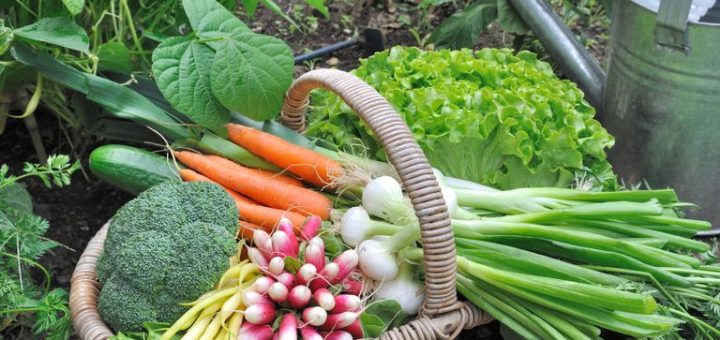
Table of Contents
- Types of Vegetable Fertilizers
- Why You Need to Fertilize Your Vegetable Garden
- Features of a Good Fertilizer for Vegetables
- Reviews: The Best Fertilizer for Vegetables
- Jobe’s® Organics Fertilizer For Vegetable Garden
- Espoma® GT18 Garden Tone Fertilizer For Vegetables
- Jobe’s® Organics Natural Fertilizer For Vegetables
- Dr. Earth® Organic Fertilizer For Vegetables
- Osmocote® 277160 Fertilizer For Vegetables
- Foxfarm® Happy Frog Fertilizer For Vegetables
- Miracle Gro® Shake N Feed Vegetable Fertilizers
- Harris® Organic Vegetable Fertilizers
- Down to Earth® Natural Vegetable Fertilizers
- FoxFarm® Happy Frog Organic Vegetable Garden Fertilizer
- Index Table: Top Rated Fertilizer for Vegetable Garden
Types of Vegetable Fertilizers
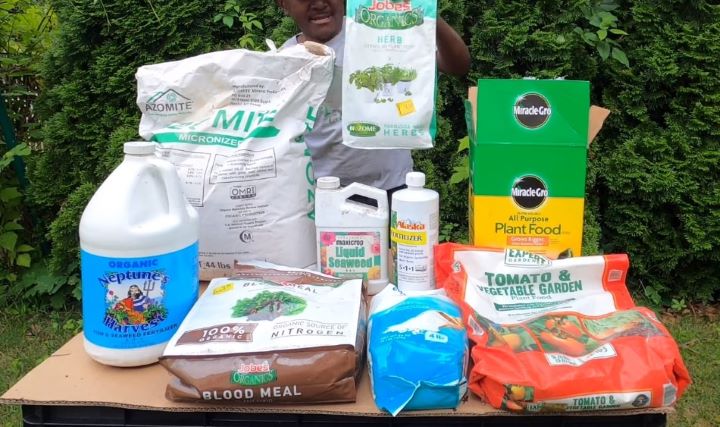
Fertilizers for vegetable gardens comprise mostly Carbon, hydrogen, and oxygen. These elements are absorbed from the soil, air, and water, yet a more fertile garden likewise needs macro and micronutrients to flourish;
- Macro and Micro Nutrients – Macro Nutrients are the basic nutrients that your vegetables need specific ratios of to grow strong, healthy, and yield fruits or flowers. These nutrients include Nitrogen, Phosphorus, and Potassium. Smaller amounts of Micronutrients are also needed in trace amounts, including calcium, magnesium, iron, and manganese. Molybdenum and other minerals.
- Organic or Inorganic Fertilizers You have the freedom to choose between organic and inorganic fertilizers, depending on your gardening preferences and needs. Organic fertilizers, derived from plant or animal materials, offer a slow release and improve soil conditions. Inorganic fertilizers, available in fast and slow-release formulas, provide the correct ratios of macro and micronutrients for your specific vegetables. This reassurance can help you feel supported in making the right fertilizer choice for your garden.
- Fish Emulsion – Fish emulsion can be sprinkled around the plants every two to three weeks as it’s rich in nitrogen and low in phosphorus.
- Manure Tea – Manure tea is also an excellent method of regularly supplementing your vegetables with much needed nutrients.
Why You Need to Fertilize Your Vegetable Garden
Fertilizer plays quite an essential role in the growth and yield of your vegetables.
The soil where you plant your vegetables becomes their habitat where they need to live and feed.
Any lining thing, even vegetables, needs certain nutrients to grow and yield a crop.
Vegetables that lack essential nutrients will not grow crops or grow properly, even wilting and dying in some cases.
Features of a Good Fertilizer for Vegetables
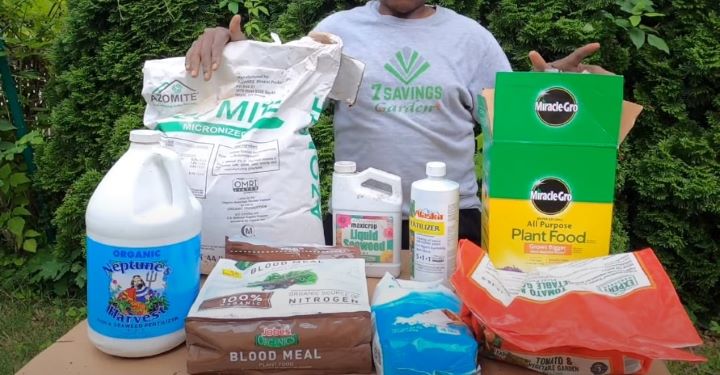
There are a few factors that I would like to address when it comes to proper Fertilizers for Vegetables;
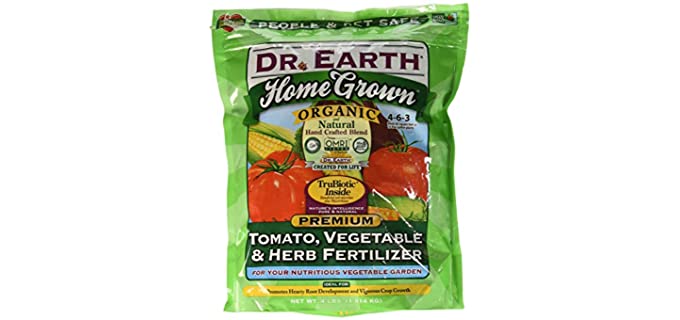
- Macronutrients – Most plants require macronutrients in quite large amounts for proper and optimal growth. There are three main micronutrients that you should look for in your fertilizer: Nitrogen, Phosphorus, and Potassium. Any good or complete fertilizer will contain all these macronutrients, and some may also include calcium, magnesium, and sulfur.
- Micronutrients – Micronutrients include nutrients that most plants will need in smaller quantities, and they may be referred to as trace or minor elements in a fertilizer. They include Boron, Manganese, Chlorine, Copper, iron, zinc, and Molybdenum. They are most likely available in sufficient quantities in your soil, but many fertilizers also include them.
- Types of Fertilizers – There are two basic fertilizers: inorganic and Organic. Organic fertilizers are materials described mostly as being made from plants and animals, and one of the most common is animal manure. Organic fertilizers can be added before planting vegetables, but they must be maintained by adding additional fertilizers to the soil. Fish emulsion is high in nitrogen and low in phosphorus and can be used as an organic fertilizer: inorganic Fertilizers or chemical fertilizers as we mainly know them. Inorganic fertilizers contain nutrients immediately available to plants and have a sustainable release over time, making them faster and more efficient.
- Understanding the Fertilizer Bag Contents – When you select a bag of fertilizer, you will see number ratios on the bags, such as 15-0-12 or 16-2-8. This describes the percentage of nutrients in the fertilizer. The first percentage is Nitrogen, which is usually the largest; the second is phosphorus, which is always low; and the third is potassium, somewhere in between. The rest of the fertilizer usually comprises inert ingredients and other nutrients in much smaller quantities. Most vegetables enjoy a balanced fertilizer, except for leafy vegetables that require more nitrogen and tender foliage.
- Slow-release and Controlled Fertilizers – Slow and Controlled-release fertilizers will provide needed nutrients to your plants over an extended period. For a vegetable garden, you will need a quick-release fertilizer that acts fast, providing immediate results, and a slow-release fertilizer to keep your vegetables in good condition.
Reviews: The Best Fertilizer for Vegetables
Listed, we have reviewed and researched some of the best available fertilizers ideal for your vegetable garden.
We hope you love the fertilizers we recommend!
We may collect a share of sales or other compensation from the links on this page.
1
Jobe’s organics contain slow-release Biozomes for better absorption and are more natural in vegetable fertilizer.
- The Organic Granular fertilizer is easy to use for your vegetables.
- It is OMRI-listed and certified fully organic and safe.
- It contains Biozomes for an aggressive breakdown of materials and improved soil functioning.
- The easy-pour bag comes in different pound-size options,
- It also improves the condition of your soil.
2
The Espoma fertilizer for your vegetables is safe for pets and the surrounding environment.
- This is a long-lasting fertilizer that is natural and organic.
- It contains Bio-Tonne microbes that break down soil and improve its condition.
- It improves the condition of the soil and is naturally light in salt.
- Ideal for vegetables and safe for pets and environmental areas.
3
Jobe’s fertilizer for vegetables is versatile, all-natural, and organic.
- These are easy-to-use fertilizer sticks for vegetables.
- The stick is slow-release and very effective.
- They contain Biozomes that improve the condition of solids and easily break down materials.
- The fertilizer is organic and natural, and OMRI is listed as safe.
4
The Organic fertilizer from Dr. Earth is ideal for vegetables, tomatoes, and herbs.
- The fertilizer ensures more tasty and nutritious vegetables.
- It is safe and easy to use and will feed your vegetables for several months.
- It has 1005 natural and organic materials and contains probiotics with beneficial microbes.
- No GMOs and completely chemical-safe, natural fertilizer.
5
Plant food and fertilizer for flowers and vegetables from Osmocote.
- The fertilizer will promote vigorous and lush growth and stronger root development.
- It is ideal for perennials and most vegetables.
- It will feed your vegetables for up to four months.
- Ideal for all vegetable gardens.
6
The Foxfarm Happy Frog Fertilizer, which contains humic acid and essential microbes, is ideal for vegetables and tomatoes.
- The formula is ideal for tomatoes and vegetables.
- It is safe and natural, as well as PH balance.
- It contains Humic acid for seed germination and increases the uptake of micronutrients.
- It adds beneficial microbes and converts fertilizers into plant foods.
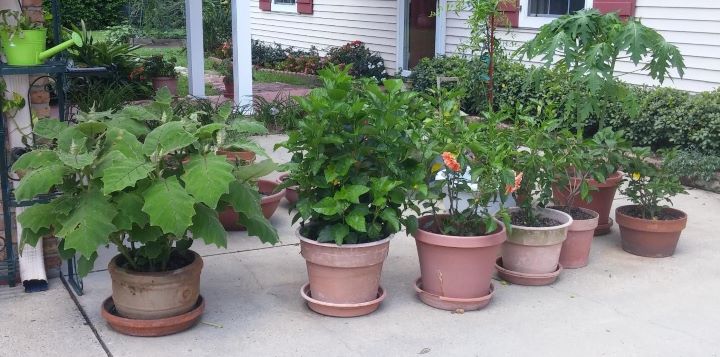
7
- The Miracle-Gro Shake feed is ideal for vegetables.
- You can use it on most vegetables, especially tomatoes.
- The Fertilizer contains natural ingredients and microbes.
- Ideal for ground and containers.
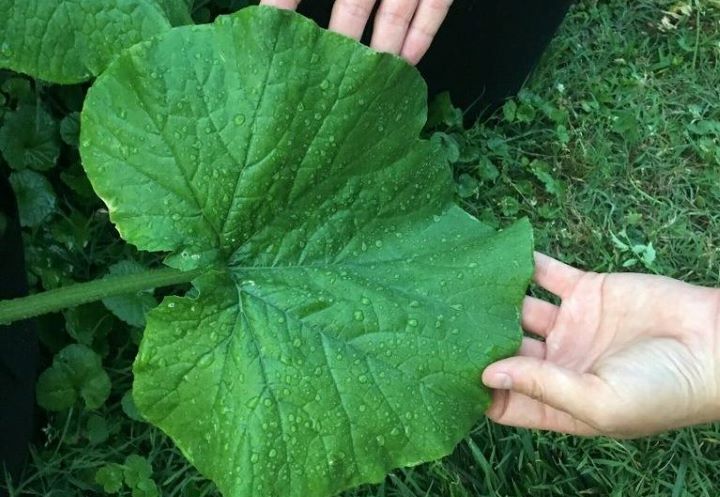
8
- The Harris Organic Plant food is a great fertilizer for vegetables.
- The fertilizer is fully organic in a hydrolyzed liquid.
- It is ideal for an organic garden.
- It will also not burn your plants.
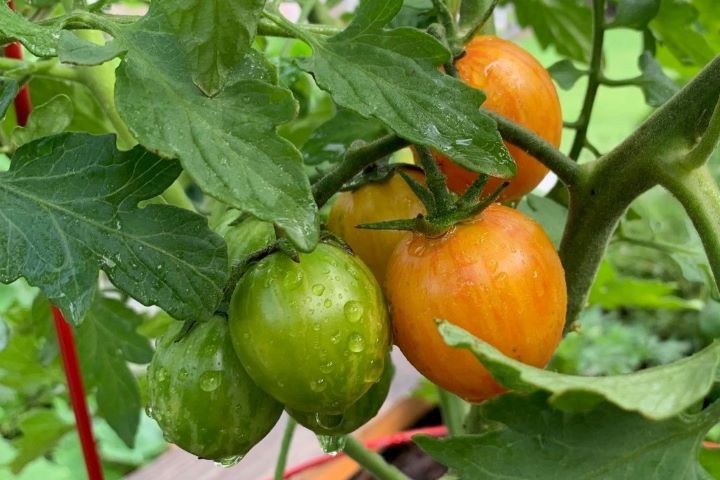
9
- The Down to earth Fertilizer is ideal for vegetables.
- It is an organic fertilizer for vegetable gardens.
- Filled with powerful nutrition and versatility.
- Ideal for your backyard garden and hobby farms.
10
- The FoxFarm fertilizer is perfect for your vegetables.
- It is ideal for most vegetables and, ideally, tomatoes.
- The fertilizer is organic and comes in a four-pound bag.
- Helps to prevent diseases with added calcium.
Index Table: Top Rated Fertilizer for Vegetable Garden
| No. | Product | Image | Features | Brand | Score |
|---|---|---|---|---|---|
| 1 | Jobe’s Organics - Fertilizer For Vegetable Garden |
| Jobe’s | 98.4 | |
| 2 | Espoma GT18 - Garden Tone Fertilizer For Vegetables |
| Espoma | 98.2 | |
| 3 | Jobe’s Organics - Natural Fertilizer For Vegetables |
| Jobe’s | 97.5 | |
| 4 | Dr. Earth Organic - Fertilizer For Vegetables |
| Dr. Earth | 96.7 | |
| 5 | Osmocote 277160 - Fertilizer For Vegetables |
| Osmocote | 97 | |
| 6 | Foxfarm Happy Frog - Fertilizer For Vegetables |
| Foxfarm | 96.5 | |
| 7 | Miracle Gro Shake N Feed - Vegetable Fertilizers |
| Miracle Gro | 97.5 | |
| 8 | Harris Organic - Vegetable Fertilizers |
| Harris | 97.6 | |
| 9 | Down to Earth Natural - Vegetable Fertilizers |
| Down to Earth | 97.7 | |
| 10 | FoxFarm Happy Frog - Organic Vegetable Garden Fertilizer |
| FoxFarm | 97 |
